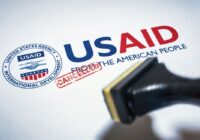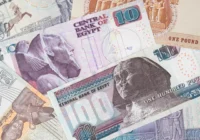Kurdistan’s education system is riddled with corruption.
“The 9th grade math’s exam sheets have been leaked,” a friend of one of these authors wrote over Facebook. “Have you got any information about the leak out of the 12th grade exam?” said another friend a couple of hours later. Later that night, a younger brother of one of the authors knocked on the door and rushed to the laptop to find the answers on social media.
Since the establishment of the first Kurdish parliament in 1992, Kurdish education sector has not been systematized. The leaking of exam sheets at schools and corruption at universities have now become a phenomenon crippling not only the education sector, but also sending the message that no matter how hard a student might work and prepare for an exam, there are still people who can get away with cheating. A PhD candidate sent these authors this link as an indication of the negative hegemony of political parties in higher education. The names of sons and daughters of elite politicians can be tracked easily. It is believed that they are accepted for PhD study through nepotism and clout.
The education system under the Kurdistan Regional Government (KRG) faces numerous problems. First and foremost, there is the large number of people who have fake and bogus awards like MAs, PhDs and professorial titles. Such academically incompetent but loyal political party members hold high official ranks from ministries to university chancellors, deans of colleges, general managers, administrators, supervisors and school headmasters. As a result of this, education has no role in Kurdistan.
Public Discontent
Public discontent is growing, both from teachers, university lecturers and students who are not political party members and a number of those employers who have not received benefits from their parties. University lecturers from Sulaimani, Halabja, Charmo and Garmyan and many other university and school teachers have given prior warnings that they will boycott this school year.
In response to their demands, the minister of education has postponed this academic year from September 10 to September 27. Despite this, teachers in Kurdistan organized a wide protest on September 27.
What was disturbing the night before the demonstration was the arrest of an activist named Hemin Abdul Khaliq. He was detained in Erbil, allegedly by Kurdistan Democratic Party (KDP) forces. He was punished for having posted a comment critical of the ruling parties. Even though Hemin was a Peshmerga (Kurdish armed forces) and a member of the opposition Movement for Change Party, the soldiers who arrested him have shaven his hair and eyebrows in a manner that symbolizes Kurdish tradition of insult, humiliation and physical rape. Many people have changed their social media profile pictures to show support to Hemin and his demands.
Dominant political parties such as the KDP warn that if any demonstrations become violent and people attack the party offices, there will be a strong response. This is a direct message—that the parties in power do not want to meet the legal demands of teachers and they intimidate teachers to accept the status quo.
The minister of education has further postponed the school year to October 1. Teachers, especially in Sulaimani province, have refused to attend classes unless their salaries are paid in full and on time. Since February 2014, salaries have been intermittently delayed, sometimes up to five months. Worse, apart from the Peshmerga and the interior ministries’ salaries, the KRG has reduced civil servant salaries to less than half. Hundreds of teachers are now working as vendors, tea-servers, barbers, bakers and selling cigarettes on the street.
A recent story of a teacher and his family’s death in a car accident has taken social media by storm. In a Facebook message revealed by his friend who lent him some money, he says: “I feel ashamed. The government has not given me my salary to return your money. I feel ashamed and I don’t have the courage to meet you.”
Academic Culture
The problem is not just related to the poor quality of education in the KRG, which is itself the result of poor human resources, lack of professionalism and an academic culture that prioritizes the award itself as a means to an end rather than create a culture of critical thinking. It is not clear what the purpose of education and the role of educators are.
The future for students is unclear and unemployment is rapidly increasing. Graduates are hopeless and students are uncertain as to what will happen to them when they graduate. Thousands of graduates, especially from humanities departments, have not been employed since 2010 with thousands more graduating every year.
No accurate data could be found about the unemployment rate in the Kurdistan region. Institutions that collect statistics are functioning under the control of party politicians, and whatever they publish is unreliable. But discontent is increasing rapidly.
 Fair Observer provides you deep and diverse insights for free. Remember that we still have to pay for servers, website maintenance and much more. So, donate now to keep us free, fair and independent.
Fair Observer provides you deep and diverse insights for free. Remember that we still have to pay for servers, website maintenance and much more. So, donate now to keep us free, fair and independent.
The lack of infrastructure has not been solved. According to the Ministry of Education, 2,000 schools need reconstruction and 2 million books must be republished for the 2016-17 school year. It is expected that neither the books nor the reconstruction will be ready in time due to growing concerns over political leadership disputes that have caused a financial crisis.
Likewise, at the University of Sulaimani alone, 120 lecturers have asked for official leave from the Ministry of Higher Education and Scientific Research and requested a transfer from public to private universities. A further 50 university lecturers from Hawler have made the same demand as well as university lecturers from Duhok city, according to NRT. In addition to delays in salaries, teachers now receive less than of their basic income. A teacher with 12 years’ experience receives around $300 a month, while a contractual teacher’s salary is less than $200.
The Cookie Cutter
When the Baathist regime fell in 2003 and the state of Iraq was on the verge of collapse, the international community saw the Kurdistan region as the beacon of democracy and prosperity. There were demands everywhere to export Kurdish democracy to the rest of Iraq. But those praising the Kurdish system did not have access to what was happening behind the scenes.
Kurdistan is still divided into two zones. The KDP controls Hawler and Duhok, and the Patriotic Union of Kurdistan (PUK) controls Sulaimani and Halabja. No practical step has been taken to join the two zones created as a result of a civil war in the 1990s.
Moreover, rather than separating politics from education, photos of Saddam Hussein were removed and replaced with those of the leaders of the KDP and PUK. Political indoctrination in the KRG has continued unabated. This is detrimental and corrosive to democracy, critical thinking and a better vision for the future.
All universities in Kurdistan belong to or divided along rival political lines. They each have opened and sponsored universities of their own to maintain a far stricter political control over much of discussion, debate and discourse.
Another problem is that just like under the Baathist regime, education in the KRG is used for indoctrination. It teaches students to be part of the party system instead of creating civil citizenship. It creates obedient and loyal members of political parties. That is where the cake is. All universities in Kurdistan are the same. They have almost everything in common: neither critical thinking nor new scientific discovery. They all replicate subjects that are taught elsewhere. There are no outstanding faculties.
Competent and young academics who are educated in the West are not given an opportunity to lead and practice what they have learned because the high-ranking positions are already given to party members. If a person does not have connections, their talent, skills, knowledge and education are useless. This is one of the main reasons why education in Kurdistan is ineffective and does not change society for the better.
It is because of these reasons that Kurdistan needs to have a less politicized education system, more professional academics and a curriculum that encourages free and critical thinking, academic debate, scientific research and a meritocratic system that does not privilege members of dominant political parties and discriminate against those who are independent academics and have no political affiliations.
All universities in Kurdistan belong to or are divided along rival political lines. They have each opened and sponsored universities of their own to maintain far stricter political control over discussion, debate and discourse. There are now so many private and public universities and they have become a joke. Kurdistan is oversaturated in a way that quantity is often preferred over quality.
Education in Kurdistan is overshadowed by political rivalry, media propaganda, fake patriotism, nationalist sentiments and party affiliation. The supervisors, for example, who are mostly appointed by political parties, centralize administrative guidelines and technical regulations. They evaluate teacher performance based on their patronage.
Out of 100 points to evaluate a teacher’s performance, school principals are allowed to evaluate 25%, while the remaining 75% is in the hands of the supervisors who only visit schools and observe teachers twice a year. As soon as the supervisor realizes that a teacher is affiliated with his or her own party, the supervisor pardons the teacher’s indifference and incapability, promoting a culture of corruption and nepotism.
The world is characterized by scientific competition, military confrontation, defying policies and hegemony of technology. In order to raise international awareness, advance human dignity and bring about justice, education is the first step. If Kurdistan wants to be respected like other advanced nations, it must first address such basic issues regarding curriculum and neutrality instead of spreading propaganda and misinformation.
Without proper education, it is impossible to forge a liberal and cultured society. Without a healthy education system, it is inevitable that exam questions will continue to be leaked and criminals will continue to break the law and get away with it.
The views expressed in this article are the author’s own and do not necessarily reflect Fair Observer’s editorial policy.
Photo Credit:Gloda
Support Fair Observer
We rely on your support for our independence, diversity and quality.
For more than 10 years, Fair Observer has been free, fair and independent. No billionaire owns us, no advertisers control us. We are a reader-supported nonprofit. Unlike many other publications, we keep our content free for readers regardless of where they live or whether they can afford to pay. We have no paywalls and no ads.
In the post-truth era of fake news, echo chambers and filter bubbles, we publish a plurality of perspectives from around the world. Anyone can publish with us, but everyone goes through a rigorous editorial process. So, you get fact-checked, well-reasoned content instead of noise.
We publish 2,500+ voices from 90+ countries. We also conduct education and training programs
on subjects ranging from digital media and journalism to writing and critical thinking. This
doesn’t come cheap. Servers, editors, trainers and web developers cost
money.
Please consider supporting us on a regular basis as a recurring donor or a
sustaining member.
Will you support FO’s journalism?
We rely on your support for our independence, diversity and quality.






